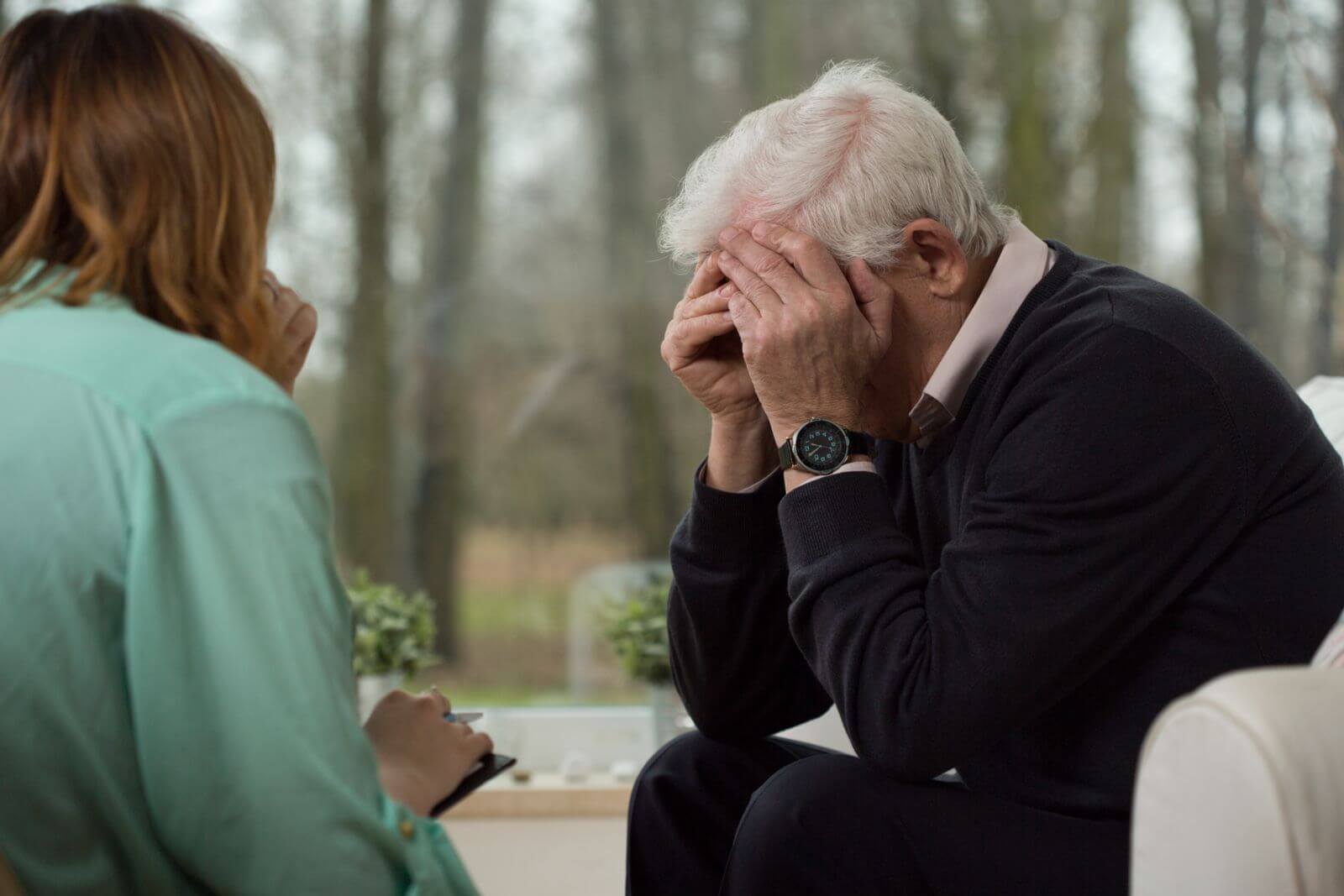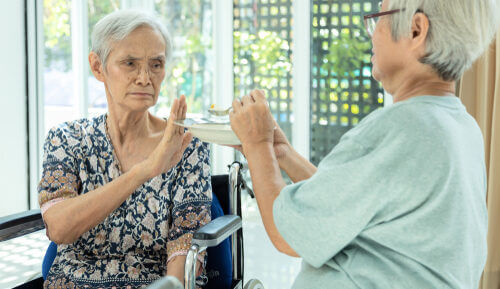
Most of the time, moving to a care home allows people to have a better quality of life and more independence than they had living at home. Care homes provide care, company, activities, security and routine. Sometimes someone will be unhappy in a care home and there are some signs you can look out for. It could be for a wide range of reasons, from the location to another resident to missing their previous home.
The good news is that there is a solution to most causes of unhappiness in a care home. It’s well worth taking time to get to the root of the problem and discussing with your loved one and the care home staff how to improve the situation.
If your loved one is unhappy in a care home, they may not want to tell you. Some older people worry about being a burden or upsetting staff at the care home. It goes without saying that their happiness is priority though. Here are a few signs that your loved one is unhappy in the care home and what to do.
Isolating themselves
Some people in care homes have to stay in their bedrooms for health reasons, but it could be a cause for concern if your loved one is choosing to stay in their room all the time. They may also be avoiding having friends visiting and not be going out anymore, or calling friends and relatives a lot but not interacting with other residents. This isolation could be for a variety of reasons, such as they don’t like the home they are in or they feel alienated in the area. This can be simply a part of being new and will pass as they get used to living there and make friends, or it can be a sign of something more sinister. A symptom of depression is losing motivation to socialise and be active, but loneliness exacerbates this, causing a vicious cycle.
Care homes generally have lots of activities going on and great links with the local community. Encourage your loved one to participate, even just slowly at first, to help them feel part of the care home community.
Losing confidence
It’s not uncommon to lose a little confidence in old age but if your loved one’s confidence has nosedived since they moved into a care home, they may need help. Living in a care home means that the person doesn’t have the same responsibilities they used to, such as running a home. This can lead them to feel a lack of purpose and lose confidence, especially if they were once the head of their household.
Living with lots of other people can be difficult to adjust to. Shyer people may feel intimidated by other residents so try to avoid being noticed, such as speaking quietly or dressing less colourfully. On the other hand, outgoing people may find it frustrating to not be the centre of attention and become noticeably subdued and less sociable.
For many people, their confidence will pick up once they get used to life in the care home. If it doesn’t, see what you can do to get them back to feeling their best.
Neglecting themselves
Not looking after themselves, or refusing care, is an alarm bell that your loved one may be unhappy. Whether they are no longer taking any pride in their appearance, refusing to wash or neglecting their nutritional needs, you must speak to the home manager. Care workers do their utmost to keep residents happy and healthy but residents still have free will.
Some people may even smuggle large amounts of junk food or alcohol back to the home. Leaning on destructive habits and neglecting health can be a clear sign that they are unhappy and need support to work on their issues.
Fixating on the past
Many of us experience longing for happier days when we are going through a tough time. If this longing becomes compulsive however, it may be a sign that your loved one may be unhappy in a care home or even depressed. They may talk at length about a specific time in their lives that they perceive as their happiest and constantly compare the present to that time in a negative way. They may even try to replicate it, such as wearing clothes from the 1970s or only listening to music that was popular back then.
Likewise, your loved one may absorb themselves in other forms of escapism to numb their current situation and feelings. They could become fixated on a book or television series or even another culture that they perceive as perfect. Like longing for the past, these escapes will often be something that they can never reach, just as nobody can time travel, nobody can enter a fictional world or simply become a native Italian.
Wistfulness is not unhealthy but if they are using escapism as a way to flee from their real life, they need support to find happiness in the present. If they are adamant that they were very happy and healthy living in their previous house before they moved to a care home, when this was not at all the case, remind them why they moved and help them to move forward with their life.
What to do
Speak to several members of staff
Speak to care workers at the home who can discuss with you what has been happening with your loved one. Together, you can hopefully build a holistic picture of when the problems started and why, especially if you speak to several members of staff. If there is one care worker who your loved one doesn’t like, find out if it’s because there is a genuine problem with their delivery of care or simply because the two personalities clash.
Speak to your loved one
The most essential thing is to speak to your loved one about how they are feeling. They may not even have realised quite how down they are or know exactly why, but giving them time to talk through their feelings could shed light on the causes behind them.
If your loved one has dementia, they may struggle to express their feelings. Care workers receive dementia training and should be able to help you here, such as letting you know what time of day your loved one is most lucid or tips on how to manage direct questions.
Find a practical solution
Team up with the staff at the care home to make a plan to help your loved one feel better. There will likely be a simple solution to the problem that is causing their unhappiness. It might be as small as getting them a pet (some care homes allow this), resolving an argument with another resident or introducing their favourite activity to the home’s schedule. It could be something bigger, like moving them to a different care home in an area they prefer or arranging weekly counselling sessions.
Take them to see their GP
There isn’t always a practical solution to your loved one’s unhappiness. They may be struggling to cope with something that can’t be solved in itself, like a bereavement or depression. In cases like this, it’s best to take them to their GP to discuss medical treatment or counselling to help them through.
Find your ideal care home
- Explore a wide range of care options and facilities
- Read independent ratings and reviews
- Connect directly with care homes to book a tour and discuss your needs


